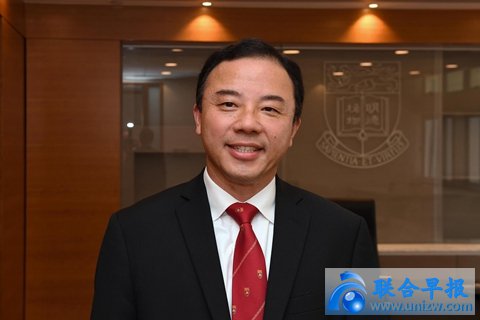
Zhang Xiang, the 16th president of the University of Hong Kong (hereinafter referred to as HKU), a Chinese-American scientist from Nanjing, Jiangsu, took up his post today (July 17).When he met with the media, he said that he was honored to serve teachers and students in Hong Kong, and he also looked forward to communicating with students and teaching staff.Zhang Xiang was appointed on December 15, 2017 for a term of five years.
Zhang Xiang also pointed out that he hopes to build the University of Hong Kong into the best institution of learning, not only to cultivate a new generation of leaders, but also to exert influence in Hong Kong, the Greater China region and the world.He also pointed out that he is very pleased to see that the Hong Kong government has invested more resources in research, and has paid more and more attention to the culture of innovation and entrepreneurship in education. He believes that this will bring development opportunities for the University of Hong Kong as a whole.
Zhang Xiang was born in Nanjing, Jiangsu Province in December 1963.He entered the Physics Department of Nanjing University in 1981; went to study in the United States in 1989; received a doctorate from the University of California, Berkeley in 1996; was elected as an academician of the National Academy of Engineering in 2010; was elected as an academician of Academia Sinica in 2012;He is a foreign academician of the Chinese Academy of Sciences.
According to the announcement of the University of Hong Kong, Zhang Xiang is an outstanding scientist in the field of nanoengineering. In recent years, his research has focused on material physics, metamaterials and nanophotonics.Before becoming the President of HKU, he was the Shouren Grant Chair Professor at the University of California, Berkeley. Since 2003, he has been the Director of the Center for Nanoscale Science and Engineering at the University, and the Director of the Materials Science Division of the Lawrence Berkeley National Laboratory from 2014 to 2016.
Zhang Xiang's recent award-winning projects include: the 2017 AC Eringen Award from the Society of Engineering Sciences, the 2016 Max Born Award from the American Optometric Society, and the 2016 Julius Springer Applied Physics Award.In 2008, one of his invisibility technologies was selected as one of Time magazine's top ten scientific discoveries of the year.
A person who was a member of the selection committee for the new president of HKU told Caixin that HKU has always emphasized the authority of academics, and Zhang Xiang’s strong academic research background is in line with the strategy of the country and the Hong Kong SAR government to develop technological innovation industries.
The person also pointed out that Zhang Xiang’s ethnic Chinese identity helps to attract scientific research resources from the mainland. During his tenure at the University of California, Berkeley, he promoted the cooperation between Berkeley and many mainland universities. I believe that in the future, it will also promote exchanges between the University of Hong Kong and the mainland..
Zhang Xiang's predecessor, Peter Mathieson, the 15th president of the University of Hong Kong, assumed office in April 2014. He resigned as president in February 2017 and resigned in January 2018.When he resigned, he had informed the outside world that he would be the chancellor of the University of Edinburgh in Scotland.Ma Feisen is a nephrologist, focusing on the clinical research of autoimmune kidney disease. He also has extensive administrative experience, and has promoted the development of research and innovation strategies at the University of Bristol and the British higher education community.
In the 2019 QS World University Rankings, the University of Hong Kong ranked 25th, up 1 place from 2018, while Beijing Tsinghua University ranked 17th, up 8 places from 2018.■



